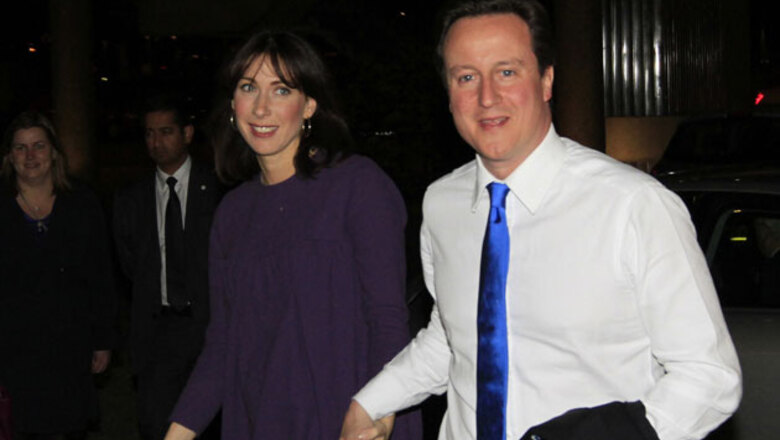
views
London: The counting is on in Britain in one of the most closely contested parliamentary battles in recent times in the country but the trends suggest that the Labour era is coming to an end.
Latest figures show that the Conservatives have inched closer to the half way mark. However, they may fall just short of the number of seats required to secure a majority. Latest figures indicate Conservative candidate David Cameron is set to be the new Prime Minister. He has won from his constituency of Witney in Oxfordshire.
Labour leader and incumbent Prime Minister Gordon Brown has also won from his constituency of Kirkcaldy in Scotland.
Analysts predict that the Conservatives will grab about 305 seats – a little short of a majority while the Labour would end up with a tally of 255. Liberal Democrats are expected to come third with about 61 seats. If that happens – Brown, as sitting Prime Minister, will get the first chance to form a government, even if Labour gets fewer seats than the Conservatives. He would likely try and strike a deal with the Liberal Democrats.
Although the Conservatives (Tories) is expected to emerge the largest party, the Liberal Democrats could emerge kingmakers, if both the Tories and the Labour fail to win a majority.
“The outcome of this country’s vote is not yet known. But my duty to the country coming out of this election is to play my part in Britain having a strong stable government, able to lead Britain into a sustained economic recovery,” said Prime Minister Gordon Brown on Thursday.
Among the key issues on which the battle was fought between parties during these elections include sustaining Britain’s economic recovery, cutting Britain’s record deficit, getting the public finances under control, protecting the National Health Service (NHS) from spending cuts, Britain’s role in Iraq and Afghanistan, Britain’s engagement with the European Union and Britain’s approach to immigration. The parliamentary expenses scandal which hit British politics recently was also one of the key issues.
On their part, the ruling Labour Party was battling for a historic fourth term in power. However, this time around the party has had its own share of problem. Other than having to contend with voter fatigue and disillusionment after being in power for the last 13 years, the party has also been tainted by scandals over its MPs’ and Ministers’ conduct. To add to it, his ‘bigot’ comment could also hurt his party’s prospects to a large extent.
Centre-right Conservatives had, in recent times tried to fresh faced and modern. Its leader David Cameroon has used EU and immigration as his main poll plank.
Asian’s in UK polls
What sets this election apart is that a record 89 candidates of Asian origin are in the poll fray. Valerie Vaz, sister of prominent Goa-origin Labour MP Keith Vaz, is one of them. She has won from Walsall Southall while another Indian woman, Priti Patel of the Conservative Party, has won the Witham seat.
In the 2005 elections, there were 68 Asian candidates and the highest number of ethnic minority MPs – 15 declared elected.
(With inputs from Sanjay Suri)




















Comments
0 comment